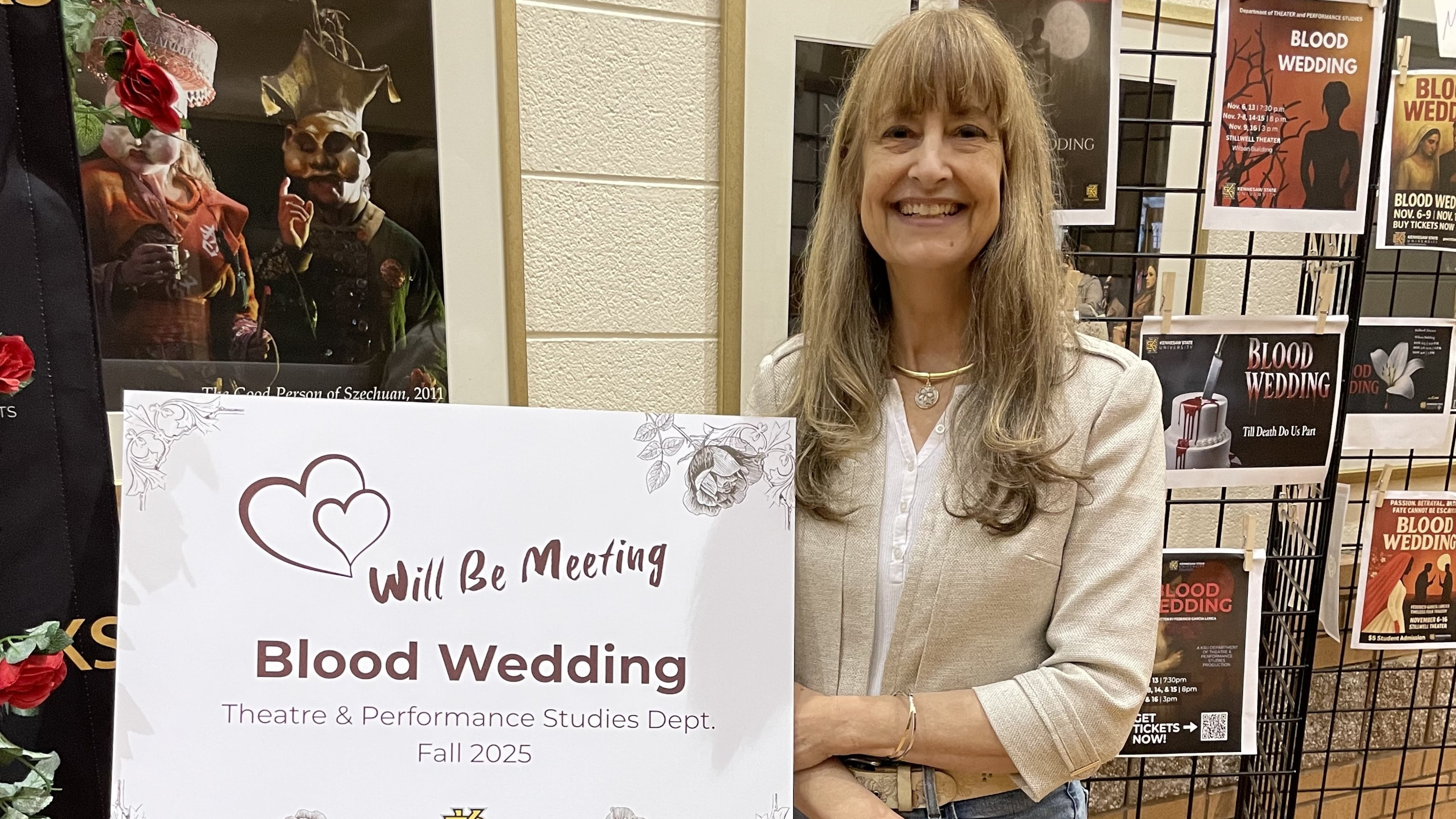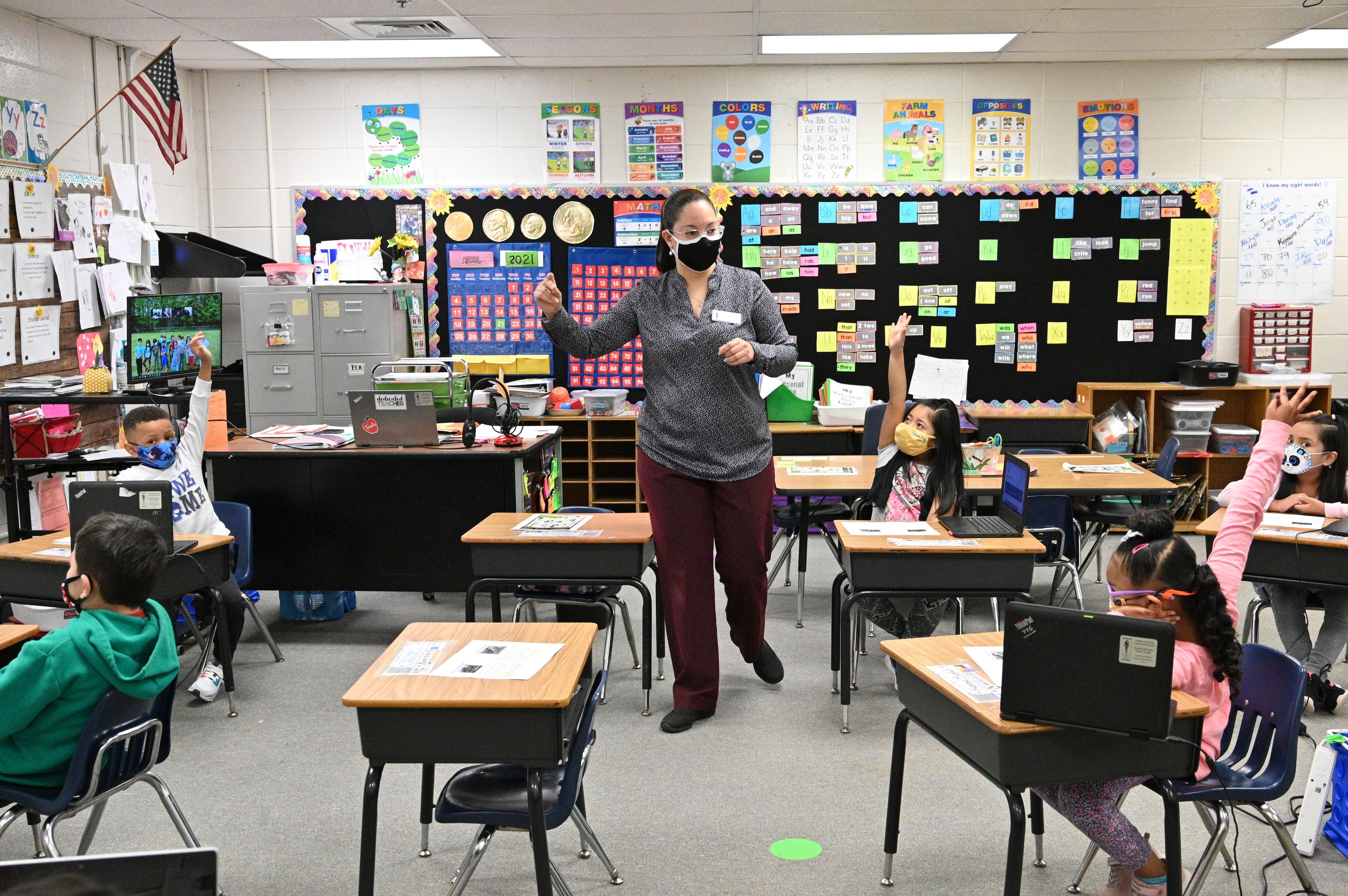Students can get real world experience without skipping college

When she arrived at Kennesaw State University in January, Kara Kapczynski wanted to create a unique learning experience for her marketing students.
The curriculum for one course she would be teaching hadn’t been updated since 2012. In her first weeks on campus, an adviser shared his belief that all things held equal, employers would more readily hire a student from Georgia Tech over one from KSU.
Kapczynski took note.
She wanted to develop a curriculum that would give her students real world experience and an advantage in a workforce that is losing ground to AI. She wanted to help them find a place in a job market where too many college graduates don’t have the skills needed to match the available jobs.
And she needed to do all of this at a time when many students, but especially young men, are deciding to forego college altogether.
“We needed to up our game in terms of giving students more skills,” said Kapczynski, a small-business owner with a background in the tech industry. “When I got here, I felt like how can I add value? I took it as a challenge.”
With concerns about the future of the American workforce at an all-time high, the state of higher education is in flux.
While the president is battling elite schools like Harvard and Brown, urging them to commit millions of dollars to workforce development (Brown did, Harvard is still considering it), corporate leaders like Alex Karp, CEO of the controversial defense tech company Palantir, have taken matters into their own hands.
Karp, an outspoken opponent of higher education, holds special disdain for elite colleges like the ones he and most other influential tech founders attended. He thinks students should now forgo college altogether for on-the-job training or at least go to a school that isn’t elite.
The Meritocracy Fellowship at Palantir is a four-month paid internship for recent high school grads who have Ivy-League worthy scores on college admissions tests but are not enrolled in college. At the end of the internship, students who excel are offered the opportunity to interview with the company.
This feels problematic since I doubt any of the students who qualified for this internship would be at a loss for job prospects if they attended college. Training them at Palantir merely feels like swapping one elite educational experience for another.
I am also inclined to believe a workforce full of young adults with specialized on-the-job training and no generalized knowledge or critical thinking skills of the sort gained in college feels shortsighted.
If there is an upside to this anti-college movement, and I’m not sure there is, it might be found in the opportunity for schools like KSU (86% of students commute) to come into its own by providing the kind of hands-on training that the marketplace demands while still allowing students a college experience.
Over the course of a semester, Kapczynski led 52 students in the marketing, promotion and research for the campus production of Federico García Lorca’s “Blood Wedding.”
When we talked one evening, Kapczynski was hanging out on campus, waiting to meet with students who were collecting survey data during the performances.
Working in conjunction with faculty and staff from the Geer College of Arts, Kapczynski’s students learned about theater marketing, audience engagement and data-driven communications.
They were grouped into 8 “agencies” that each developed a pitch for promoting the show. Students presented their ideas for a full marketing and communications plan to their clients, the faculty from the College of Arts, who then chose the winning pitch.
Moving from proposal to planning to implementation gave students exposure to everything from branding — all printed and digital materials had to go through the university’s approval system — to using AI for graphics and data sorting.
They learned how and when to write formal business communications, an area of weakness for students whose primary mode of communication is texting, Kapczynski said, and they developed a survey to obtain feedback on the show.
The course finale will include a presentation to the client with analysis of the survey findings gathered from almost 600 show attendees.
Kapczynski is proud that she was able to give her students practical experience they can use in the future.
Students need real experience in the real world, and with more innovative teaching strategies and programs at our institutions of higher learning, they won’t have to skip college to get it.
Read more on the Real Life blog (www.ajc.com/opinion/real-life-blog)
Sign up to get my column sent straight to your inbox https://www.ajc.com/newsletters/nedra-rhone-columnist


